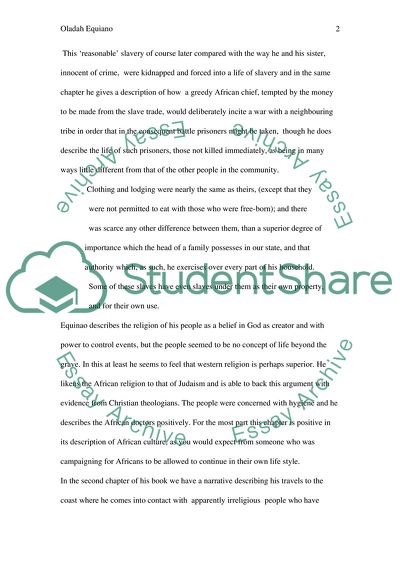Cite this document
(Olaudah Equiano Book Report/Review Example | Topics and Well Written Essays - 1500 words, n.d.)
Olaudah Equiano Book Report/Review Example | Topics and Well Written Essays - 1500 words. https://studentshare.org/sociology/1713663-the-interesting-narrative-of-the-life-of-olaudah-equiano-or-gustavas-vassa-the-african-written-by-himself
Olaudah Equiano Book Report/Review Example | Topics and Well Written Essays - 1500 words. https://studentshare.org/sociology/1713663-the-interesting-narrative-of-the-life-of-olaudah-equiano-or-gustavas-vassa-the-african-written-by-himself
(Olaudah Equiano Book Report/Review Example | Topics and Well Written Essays - 1500 Words)
Olaudah Equiano Book Report/Review Example | Topics and Well Written Essays - 1500 Words. https://studentshare.org/sociology/1713663-the-interesting-narrative-of-the-life-of-olaudah-equiano-or-gustavas-vassa-the-african-written-by-himself.
Olaudah Equiano Book Report/Review Example | Topics and Well Written Essays - 1500 Words. https://studentshare.org/sociology/1713663-the-interesting-narrative-of-the-life-of-olaudah-equiano-or-gustavas-vassa-the-african-written-by-himself.
“Olaudah Equiano Book Report/Review Example | Topics and Well Written Essays - 1500 Words”. https://studentshare.org/sociology/1713663-the-interesting-narrative-of-the-life-of-olaudah-equiano-or-gustavas-vassa-the-african-written-by-himself.


